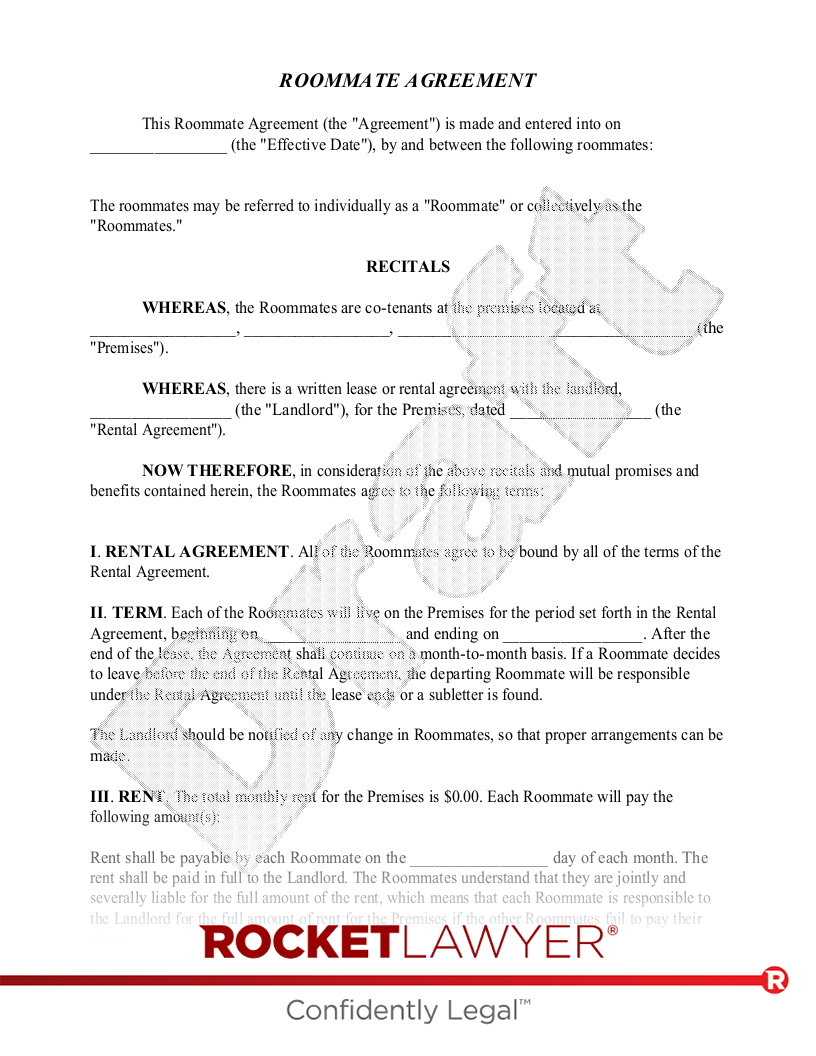What are common problems that arise in co-living situations?
Different types of co-living arrangements can create different problems depending on the closeness of the relationships between co-living partners and the types of responsibilities they share. Some people prefer to live with people with whom they already have strong relationships, such as close friends, family members, or romantic partners. Many people, however, move in with complete strangers. In each case, co-living partners’ expectations of one another are often shaped by their reasons for deciding to live together.
Regardless of the type of co-living arrangement, challenges typically arise from three common areas:
- Splitting expenses.
- Sharing space.
- Cleaning.
Unsurprisingly, money can be a major source of conflict because many people enter a co-living arrangement primarily for financial reasons. While most co-living partners have an arrangement to split rent and major utilities, they commonly neglect more tangential household expenses such as food and cleaning supplies.
Co-living partners are also tasked to balance sharing common space with respecting each other’s boundaries. Conflict can arise when one co-living partner monopolizes common space or intrudes on another partner’s private space.
Similarly, a partner who consistently leaves the kitchen or bathroom a mess and refuses to clean up after themselves is likely to frustrate their roommates. Lack of clarity about rights and responsibilities in any of these areas can lead to misunderstandings and draw out the worst qualities of co-living partners, creating emotional turmoil within the home and making everyone miserable.
What kinds of house rules can help avoid disputes?
While it’s impossible to anticipate every potential issue, establishing rules about the most common sources of conflict in co-living arrangements can prevent problems from arising and facilitate an easy resolution when they do. It’s helpful to make a Roommate Agreement that includes rules around the three areas of splitting expenses, sharing space, and cleaning.
To create house rules around splitting expenses, start with a list of every possible shared expense the co-living partners may face. Be sure to include rent and major utilities such as electricity, gas, water, internet access, and trash collection, but also include more tangential expenses such as food staples, streaming subscriptions, cleaning supplies, and other household needs. Next, determine how to split each of these expenses among partners. Fixed expenses, such as rent and internet access, can be split by assigning each partner a specific amount, while variable expenses like electricity are best accounted for by assigning each partner a percentage of the amount due each month. Remember to include a rule that such expenses be paid on time and to set a reasonable time limit for reimbursing other co-living partners as needed.
To create house rules around sharing space, begin by determining which parts of the home are shared or common spaces and which parts are private spaces. For common spaces, consider the types of activities allowed, the times during which they are allowed, and the frequency with which each roommate may access the space. For example, if co-living partners share a TV in the den, a rule might specify that one roommate can use it to play video games on it for two hours on the weekends while everyone can use it to watch movies or shows during the week. Consider creating special rules for handling guests, such as how long overnight visits can last or whether they’re allowed at all.
To create rules around cleaning, first make a list of all household chores and duties along with the frequency with which they are expected to be done. Then, assign each to one or more co-living partners. Pay attention to co-living partners’ unique skills and preferences when assigning duties. For example, one roommate may love to cook while another might find it soothing to listen to a podcast while doing the dishes.
Finally, create a plan for resolving disputes not clearly governed by the rules, including what happens if someone violates the rules. For example, each roommate might be given the authority to call a house meeting to address an issue and agree to pay a penalty to the group if they violate one of the rules.
What if I’m living with a co-parent?
While some co-parents decide to live together to spend more time with their children and share the responsibilities for raising them, co-living with a co-parent creates unique challenges and amplifies others. Co-parents can create a Parenting Plan to detail key child-rearing decisions, including where they go to school, whether they attend religious services, and what restrictions apply to them. Co-parents may also wish to create Child Care Instructions for the other to follow when a child is left in their care.
It’s crucial that co-parents clearly define their relationship to one another, set personal boundaries, and agree to have a discussion before making any significant changes. It is particularly important for co-parents to have their own space within the home that the other respects absolutely. Because emotions can so easily get entangled in co-living conflicts between co-parents, it’s often helpful to have a third-party mediator, such as a counselor or trusted friend.
How can a written agreement help avoid potential problems?
Written agreements reduce ambiguity, which is the primary cause of conflict and frustration in co-living arrangements. Putting your house rules in writing in the form of a Roommate Agreement, Cohabitation Agreement, or Co-Tenancy Agreement ensures that each co-living partner knows the rules and agrees to abide by them. A written agreement also serves as a contract that allows for accountability in case someone stops paying rent or otherwise violates their duties.
If you have more questions about establishing enforceable rules or boundaries in your home, reach out to a Rocket Legal Pro™ for affordable legal advice.
Please note: This page offers general legal information, not but not legal advice tailored for your specific legal situation. Rocket Lawyer Incorporated isn't a law firm or a substitute for one. For further information on this topic, you can Ask a Legal Pro.
